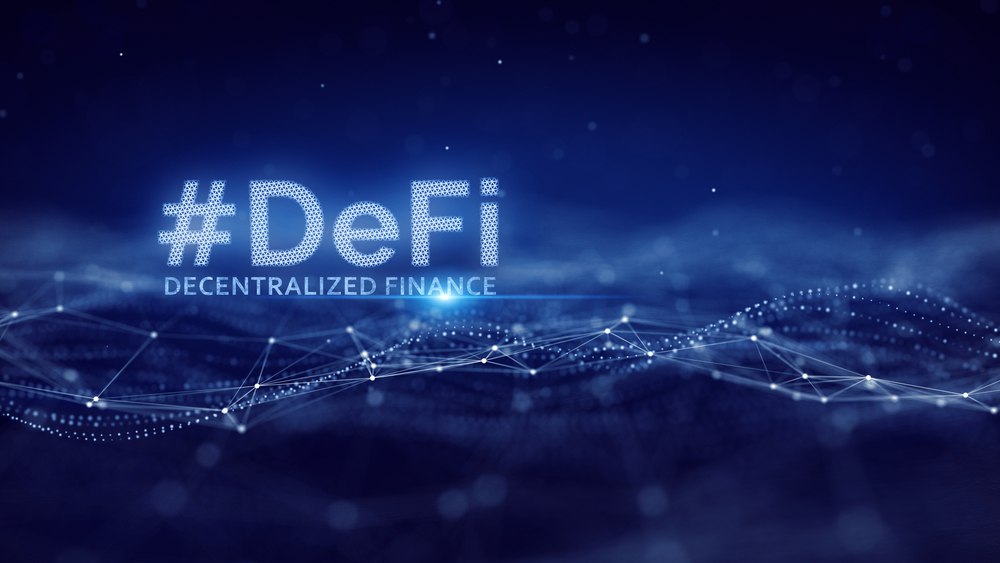Sudden Spike in Global DeFi Economy
There had been a sudden spike in the overall valuation of the decentralized finance (DeFi) economy which is now exceeding $332.86 Billion.
An unexpected hike was witnessed on Tuesday, which swelled up the global DeFi economy by at least 5.6%.
On that day, DeFi protocols saw digital assets worth more than $20 Billion becoming part of the total value locked (TVL).
Amongst the top-ten DeFi projects, Polygon (MATIC) turned out to be the biggest gainer of Tuesday’s hike. The project’s gains were recorded to be over 12% on that day. The second number was Aptos (APT) whose gains were slightly less than MATIC but more than 10%.
Tuesday’s push influenced almost every protocol in the DeFi ecosystem. For instance, exceptional gains were also seen by protocols such as Solana, Polkadot as well as Chainlink. Their individual gains were however in the range of 6 to 7% only.
Promising Gains for Less Popular Protocols
Tuesday’s value boost was no less than a miracle as it subsequently affected the entire DeFi ecosystem simultaneously.
However, none of the top-ten protocols in the ecosystem were able to make bigger gains as were fetched by less popular protocols.
Amongst the less popular DeFi protocols, Parsiq (PRQ) was the top gainer within the entire DeFi ecosystem.
PRQ’s gains were over 27.7% which was then followed by another less popular protocol, Fantom (FTM), which accumulated gains of over 17.5%.
In the same league, number three was NEAR whose value subsequently rose by at least 11.4%.
Subsequent Change in the Valuation of Global TVL
Tuesday’s push also subsequently modified the valuation of global TVL into the DeFi ecosystem. It is expected that the global TVL’s valuation would very soon cross the $50 Billion mark i.e. a crucial range from the experts’ perspective.
So far the global TVL’s valuation has reached $49.48 Billion and would need a gentle push to cross the crucial benchmark.
Amongst the TVL leaders, Lido Protocol continues to ensure its dominance over all other protocols. The project’s contribution accounts for over 17.32% of the global TVL which, in terms of USD is, over $49 Billion roughly.
On the said day, Lido also saw its TVL swelling up by roughly 5.79%. On the other hand, Makerdao’s TVL surge was less than 3%, although, by TVL contribution, Makerdao is at number second after Lido.
However, amongst the biggest contributors to global TVL, Rocket Pool came out as the biggest gainer whose TVL surged by approximately 7.38%.
Stats Provided By Defillama
After the surge, defillama.com was the first to give the stats showing the impacts of Tuesday’s surge. Stats indicated that Tuesday’s value surge was the biggest which the DeFi ecosystem had seen last time a month ago.
Defillama.com further noted that there were double digital gains collectively for each project among the top 20 DeFi protocols. This is quite a success and a strong demonstration by each project in the DeFi space.
The top-20 decentralized finance protocols demonstrating strong performances mean that the entire DeFi space is fortunate.
The investors must increase their ties with the particular field so they can benefit from it as much as possible.
According to defillama.com, a further double-digit gain, in the past 30 days, evidently recorded for the leading blockchains in the network.
Stats indicated that the TVL belonging to Optimism was the top gainer because it had surged by over 47% in the past-30 days. It is quite the achievement that has been scored by Optimism in the past 30 days.
Currently, global TVL has rebounded back to its old position which existed prior to the inevitable collapse of FTX in November 2022.
Since FTX’s collapse, the DeFi ecosystem was one of the major sufferers in the digital asset industry. However, since then things are slowly changing precisely but steadily.







More Stories
Koinal Review – Is Koinal Scam or a Trusted Broker? (Koinal.ai)
Fxp360 Review – Is Fxp 360 Scam or a Trusted Broker? (Fxp360.com)
Coinbase Files A Petition To The SEC, Argues That Staking Should Not Be Classified As Securities